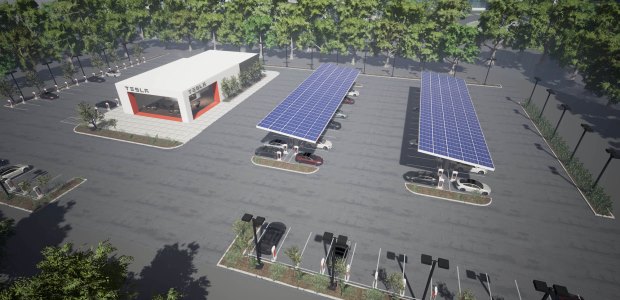
Tesla Promises Big Boost in Charging Units
Having begun 2017 with more than 5,000 Superchargers globally, Tesla by the end of 2017 expects to have more than 10,000 Superchargers and 15,000 Destination Charging connectors in operation worldwide.
Tesla is promising to double its network of charging units in preparation for its first mass-market vehicle. "It is extremely important to us and our mission that charging is convenient, abundant, and reliable for all owners, current and future. In 2017, we’ll be doubling the Tesla charging network, expanding existing sites so drivers never wait to charge, and broadening our charging locations within city centers," the company said in an April 24 blog post.
The company's Supercharger network was turned on in 2012, and Tesla has built more than 5,400 Superchargers "with the goal of enabling convenient long distance travel for more than 200,000 Tesla owners around the world. In parallel, we've built a network of more than 9,000 Destination Charging connectors that replicate the convenience of home charging by providing hotels, resorts, and restaurants with Tesla Wall Connectors. But we know that to truly advance electric vehicle adoption, we must continue investing in charging infrastructure," the post says.
Having begun 2017 with more than 5,000 Superchargers globally, Tesla by the end of 2017 expects to have more than 10,000 Superchargers and 15,000 Destination Charging connectors in operation worldwide: "In North America, we'll increase the number of Superchargers by 150 percent, and in California alone we'll add more than 1,000 Superchargers. We’re moving full speed on site selection and many sites will soon enter construction to open in advance of the summer travel season. Toward that goal, Tesla will build larger sites along our busiest travel routes that will accommodate several dozen Teslas Supercharging simultaneously. In addition, many sites will be built further off the highway to allow local Tesla drivers to charge quickly when needed, with the goal of making charging ubiquitous in urban centers."